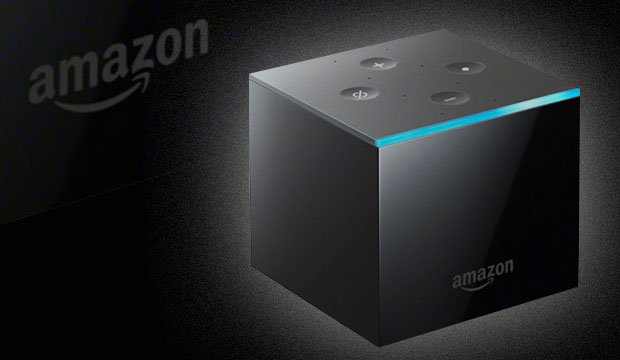Tech companies have been going through a lot of CEOs of late. Prior to its split, HP had a revolving door for CEOs with mistake after mistake. Yahoo’s board kept making choices that made things worse, Uber’s CEO almost took the company under (granted, he was a founder), and CEOs fired for ethical lapses jumped a whopping 36 percent. Intel’s CEO was fired for an ethical lapse.
When an employee misbehaves and has to be fired, it generally is at least partially the fault of management, either for not doing a respectable job of selection or for not doing a good job of oversight, or both.
In Intel’s case it was mostly the latter problem, as there clearly were oversight issues with regard to controlling self-dealing behavior (the TV show, the abusive behavior, the stock sale that looked like insider trading). However, there also were issues with its selection process. (The affair should have been identified, as should have the tendency to abuse power.)
Since this is the second firing of an Intel CEO in a relatively brief period, it brings the board itself into question. However, the stats on CEO behavior show this isn’t just an Intel problem but rather a global one. Board members increasingly have been choosing to not do their jobs.
I think this is because there has been a change in the makeup of boards. Emphasis has drifted away from installing members with skills that help the CEOs and toward members who have important relationships or excessive voting power (hedge funds). For the purpose of illustrating this problem, Intel is a good example, but I’m raising a red flag in general: We need to rethink boards.
I’ll close with my product of the week: the new Alexa-enabled Amazon Fire TV Cube.
What Should a Board Be?
One of the issues core to the problem, I think, is that collectively we have forgotten what a board should be. A corporate board represents the shareholders, and its job is to speak for the owners of the corporation. This is an elected office, but the stockholders often get little say about who goes on the board, and elections tend to be anything but democratic. There is seldom more than one candidate for any spot, and voters get an approve or disapprove vote.
Over time, share ownership has shifted from long-term investors like you and me, to institutional investors like retirement funds, to hedge funds. That’s problematic in two ways: It separates the voters from their representatives; and hedge funds tend to be tactical, not strategic. They favor behavior that focuses the firm’s executives on quarterly results rather than on long-term survival and success, increasing the risk of company failure. This is one of the reasons Michael Dell took Dell private. Boards that operate like that can be suicidal for a company.
One of the significant changes made to boards a few decades back — but unmade recently — was to have at least one board member who represented the employees. This was partially as a defense against unionization. I expect that it stopped being a priority because union power declined, but in firms like Intel, the result has been an increase in workplace hostility.
To be successful, a board should have a majority of members who understand the firm’s core business. It also needs members who understand industries the firm wants to expand into. I would argue that it needs members who understand and can represent employee interests, and it needs members who are current on applied technology and geopolitical trends.
Finally, and this is particularly critical, a successful board needs a member who can mentor the CEO effectively. This is critical if there is a new CEO, because the CEO job is very different from anything the new chief may have done previously.
Once in place, board members have a job to do. Meetings aren’t parties. They are designed to ensure that the CEO is doing the job the board believes needs doing. However, the board can’t micromanage either. It should provide critical advice so the mistakes the CEO makes — and there will be mistakes — can be mitigated or, when possible, avoided all together.
Sadly, a board also is missioned to step in if the CEO goes off the rails and begins to do harm, behaves as though the company is there to fuel the CEO’s personal appetites, or becomes infirm. Boards often don’t do this in a timely way. The members’ reasons may range from lack of skills, to fear of losing their seat, to collusion — but this isn’t an uncommon problem.
A successful board is a team consisting of an engaged group of advisors with teeth. The CEO handles execution. That generally is not what we have now. Sadly, were I to give Intel’s board a title, I’d call it “friends of Andy Bryant.” While that might be great for comfortable interaction, it isn’t so great for governance. Based on their backgrounds and interests, most of its members never even would be considered for jobs at Intel at any time during their career, let alone be considered qualified to help run the company.
This is problematic and likely led to the poor CEO decision.
Intel’s Board
Intel’s board has nine members:
Andy D. Bryant, Chairman. Andy is an Intel expert. He has held both financial and operational roles in the company, but his background and education are in business and finance. Those are critical skills, but he lacks an engineering degree and would supplement Intel’s CFO better than the CEO. Although critical as a board member, he’s a weak choice to serve as chairman.
Andy Grove, who also was chairman, would have been a better choice, but Intel has had issues with past CEOs since Grove’s departure, making them less than ideal. So, Bryant likely was seen as the best choice of poor alternatives, but this likely is the foundation of the problem. The makeup of the board and Krzanich’s firing suggest, after the fact, that Bryant was a very poor choice, highlighting a common difference between competence on paper and competence in fact.
Aneel Bhusri. Aneel is CEO of Workday, a provider of enterprise cloud applications. He seems an odd choice because Workday is a software provider, not hardware, and two steps removed from Intel’s core business. Certainly, cloud expertise is important for Intel’s board, but software is a very different business than hardware.
While he could help with general CEO types of problems, he’d mostly be out of his depth with regard to much of what Intel actually does. (Intel does do software, but it is mostly in support of its processor business and in a very different class than Workday.) The big danger is he could push Intel in the wrong direction, much like HP’s old board, which selected failed CEO Leo Apotheker. Bhusri is a strong player — he just has the wrong skill set for a company like Intel.
Reed E. Hundt. Reed is interesting in that he promotes green banks and has a U.S. communications commission background. There should be a geopolitical expert on the board, and he likely fills that role — he is well published on this subject.
Hundt’s networking and communications background suggest he’d likely be more effective on Cisco’s board than Intel’s, but even though he isn’t an ideal choice, he does fill a critical role on the board. His interests (green banking) don’t seem to align very well with Intel’s, however, so I’d question whether he truly was engaged or just attending the meetings as something to do or for the money.
Omar Ishrak. Omar is in the medical technology industry and out of GE. He is an electrical engineer, which is important for a firm like Intel, but his background doesn’t seem to include processors.
He has strong experience in Asia, a critical market for Intel, but in a segment that is very insular and often uses companies like Dell to supply computing needs, which makes him one or two steps removed from companies working directly with Intel. Ishrak’s advice might not align well with Intel’s skills, needs or future growth.
Risa Lavizzo-Mourey. Risa holds a medical degree and an MBA. Her background suggests no clear alignment with Intel’s current or expansion markets, and it’s likely she’s out of her depth at a firm that’s not medically oriented.
She is a double minority, so she may have been selected to create the impression of diversity — but with minor risk of her advice or guidance ever being followed. Given how misaligned her background is, that actually might be a good thing. She also serves on the Board of GE, a firm that is in the medical equipment business — but also in sharp decline of late.
Tsu-Jae King Liu. Tsu-Jae is an academic out of Berkeley and another double minority. Her background is in electrical engineering and computer science. Operationally, academics tend to be out of touch, but they can be a useful resource for company vision, depending on what their areas of research are.
Liu’s research has been in nanometer-scale logic and memory devices, as well as advanced materials, process technology, and devices for energy-efficient electronics. These are all extremely relevant to Intel’s future.
So, Liu is an excellent choice for Intel’s board, but she is overmatched because the majority of other board members likely couldn’t even read one of her many patents. She is easily the strongest member of Intel’s board. I think she’d be a far better choice for chairman than Bryant is.
Gregory D. Smith. Gregory is yet another financial type but he’s out of Boeing, an aerospace company. Boeing is also represented on Microsoft’s advisory board.
Smith’s presence makes Intel’s board way overweight in terms of financial resources, and his interests appear to drift toward philanthropy, botany and, again, medicine. He could play a strategy role at Boeing, but the connection between aerospace strategy and anything Intel needs to do in the near term seems tenuous at best. Also, Smith’s interests suggest he’d largely be bored at Intel Board meetings.
Andrew Wilson. Andrew is CEO of Electronic Arts, one of the most powerful video game companies in the world. With personal interests in the World Surf League, he does represent an important industry for Intel (video gaming). However, because it is an existing — not an expansion — industry, it follows that he’s a good, but not great, choice for Intel’s board — particularly given that Intel is light on graphics (but graphics is an expansion area for the firm).
Intel would be better off seating directors in the automotive, IoT, or personal technology segments on the hardware side, given that they are all more current and more closely related to what Intel wants to do. On a good Intel board, Wilson would be one of the weakest members. On this board, he is the third-strongest on paper.
Frank D. Yeary. Frank is yet another financial type, but his focus is on advising public companies. His interests appear to be more in banking than in manufacturing, where Intel resides.
In that role, he should have had a fit when Krzanich sold his shares, given the insider trading implications.
Prior to 2004, Yeary did manage a technology fund, but that experience is massively out of date 14 years later. His interests appear to be in education (not specifically engineering) and related finance programs, so by background and interest he would appear to be a poor choice for Intel’s board. There is no evidence he was effective even in the narrow area where he should have been (the stock sale).
Wrapping Up: Building a Better Intel Board
If it were up to me, I would purge Intel’s current board and largely start over, building a new board around Tsu-Jae King Liu, the strongest member on it. I’d increase the number of women on the board to at least four and make them mostly engineers with executive management experience in companies that buy processors or that are known to drive diversity (particularly gender diversity).
I’d particularly look for board members from companies like Amazon, Tesla, Audi, Google, Facebook, Dell, Cisco, HP, HPE, Lenovo, VMware and the Institute for the Future.
Intel has a board that isn’t aligned with its existing or future business. As a result, the odds that it will pick a strong CEO to replace Krzanich, let alone properly husband that CEO to success, are slim to none.
As I’m writing this, Logitech just appointed someone from Lego to be on its board. This screwy practice doesn’t bode well for the entire segment. Intel may just be a drop is an increasingly troubling bucket.
I have friends who argue they wouldn’t allow an Amazon Echo in their home on a bet due to privacy concerns. Clearly, I don’t agree with them because I have one of these things in most rooms of my house, including my garage and river patio. I mostly just use them for music and to ask about the weather. (Here in Bend, Oregon, the weather can change dramatically during any day of the week.)
I also use Amazon’s Fire TV (mostly when I travel so I can watch my own shows) and carry a Fire HD 8 tablet.
So, I immediately got the Fire TV Cube when it became available.

At a cost of around US$120, Amazon’s Fire TV Cube is one of the more expensive Alexa-enabled devices. I used it to replace a second-generation Fire TV on a new 75-inch HDR Samsung TV.
The biggest benefit is that the device seems absolutely immune to Alexa commands coming from the TV, which got really annoying with the Echo I had near the TV. (This did improve over time but was still a problem.) Setup was pretty painless. (It initially didn’t want to see the remote, but that was because I put one of the remote batteries in backwards.)
In use, it works just like the Fire TV, but you don’t need to hit the microphone button on the remote to ask questions, and you can control the TV with voice commands. This last is still a bit iffy and will get better with software updates. Right now, it mostly works with Netflix and, of course, Amazon Prime.
I doubt I’d replace a current-generation Fire TV with this, and it is too big for travel, but for a new user or to replace an older Fire TV this is likely the best choice now. My wife loves it, which alone is enough to make the Amazon Fire TV Cube my product of the week.
























































